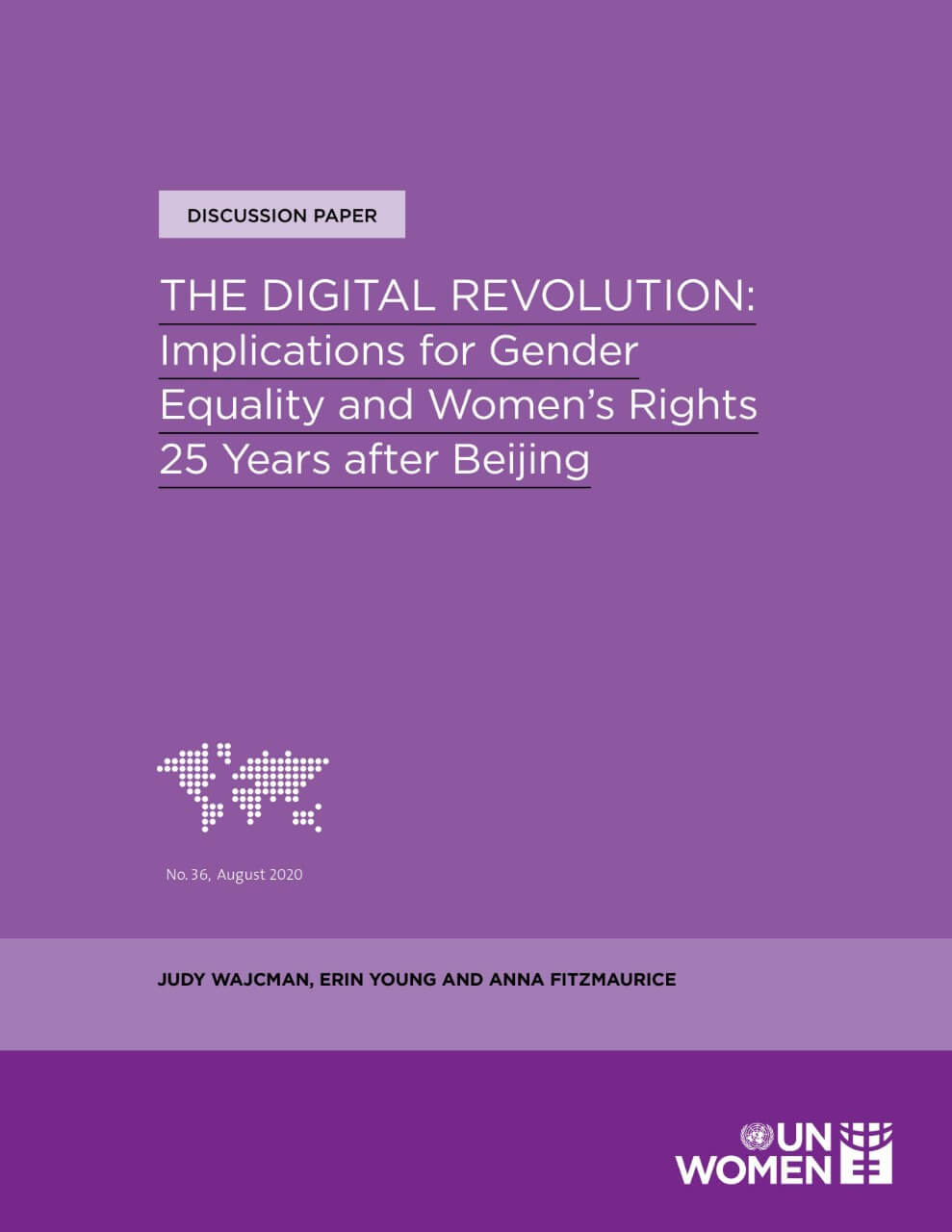The digital revolution: Implications for gender equality and women’s rights 25 years after Beijing
The digital revolution brings immense potential to improve social and economic outcomes for women. Yet, it also poses the risk of perpetuating existing patterns of gender inequality. Despite several important initiatives, a significant digital gender gap remains, limiting the equitable realization of the benefits of digital transformation across high-, low- and middle-income countries.
This paper begins by outlining a conceptual framework for understanding the mutual shaping relationship between gender and technology. It then focuses on three areas to identify opportunities and risks in the digital revolution: education, work, and social/welfare services.
First, we examine the ways in which the digital skills gap in the education sector can lead to the encoding of gender biases in technology, how education technologies might help or hinder the situation, and the masculine stereotypes within STEM fields.
Second, we consider the implications for women of the changing world of work, such as the increasing precarity of jobs and “masculine defaults” within tech workplace climates. We show how the underrepresentation of women in technical fields partakes in a feedback loop, amplifying gender bias in AI and machine learning systems.
Third, we look at the benefits and risks of the implementation of automated decision-making in social and welfare services. The human rights of the most vulnerable are especially at risk in the digital welfare state, and we present pathways for ensuring gender equality, such as establishing external accountability mechanisms.
The paper concludes by offering concrete policy recommendations to advance progress for women’s rights within the digital society.
This paper is part of the “UN Women discussion paper series”.










